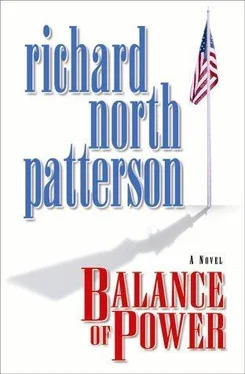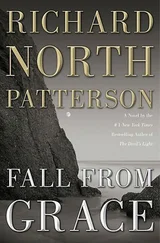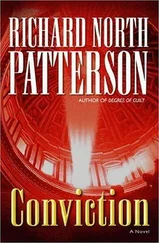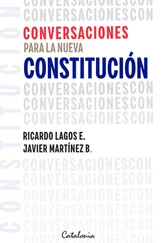Richard Patterson - Balance of Power
Здесь есть возможность читать онлайн «Richard Patterson - Balance of Power» весь текст электронной книги совершенно бесплатно (целиком полную версию без сокращений). В некоторых случаях можно слушать аудио, скачать через торрент в формате fb2 и присутствует краткое содержание. Жанр: Старинная литература, на английском языке. Описание произведения, (предисловие) а так же отзывы посетителей доступны на портале библиотеки ЛибКат.
- Название:Balance of Power
- Автор:
- Жанр:
- Год:неизвестен
- ISBN:нет данных
- Рейтинг книги:5 / 5. Голосов: 1
-
Избранное:Добавить в избранное
- Отзывы:
-
Ваша оценка:
- 100
- 1
- 2
- 3
- 4
- 5
Balance of Power: краткое содержание, описание и аннотация
Предлагаем к чтению аннотацию, описание, краткое содержание или предисловие (зависит от того, что написал сам автор книги «Balance of Power»). Если вы не нашли необходимую информацию о книге — напишите в комментариях, мы постараемся отыскать её.
Balance of Power — читать онлайн бесплатно полную книгу (весь текст) целиком
Ниже представлен текст книги, разбитый по страницам. Система сохранения места последней прочитанной страницы, позволяет с удобством читать онлайн бесплатно книгу «Balance of Power», без необходимости каждый раз заново искать на чём Вы остановились. Поставьте закладку, и сможете в любой момент перейти на страницу, на которой закончили чтение.
Интервал:
Закладка:
Looking past him, Clayton stared out the window at the Rose Garden, then sipped from his mug of coffee. "You'd have to put Al Anwar on trial, I expect. Except that he'd make a rotten prisoner."
Slowly, Kerry nodded. "Bad for hostages, you mean. His people could kidnap more Americans, demanding his return. And when I didn't cave, Al Qaeda would start mailing me their prisoners' severed limbs."
"You'd have to assume that."
"And the World Court?"
"Legalities aside, same problem—except that our allies would hate it. Imagine NATO once Al Anwar starts bombing Italian lovers in cafes, or blowing up Big Ben. We'd lose support for rolling up his network." Pausing, Clayton stared into his coffee cup. "And so . . ."
Kerry was silent. As often as he had imagined being President, the weight of lives in the balance felt heavy beyond his reckoning. At length, he answered, "We hope for the ideal outcome. Where there's nothing to decide."
There was nothing more to say. Clayton understood him well: tomorrow morning, perhaps, Kerry would learn that Al Anwar was dead.
"Guns," Kerry said.
The verbal shorthand was typical of them. "They'll be here at ten," Clayton answered. "Martin Bresler and five gun company CEOs."
"Voluntary safety locks." Kerry's tone combined wonder and disgust. "Thirty thousand deaths from guns a year, and this is the best we can do."
Clayton shrugged again. "If these folks don't get kneecapped by the SSA for doing this , maybe next time they'll help you keep guns away from criminals. That might actually save some lives."
"Amazing," Kerry said. "We pass a law requiring licensed gun dealers to run background checks so felons, wife-beaters and drug abusers can't buy weapons. But all you have to do is say you're a collector, not a dealer, and you can take your arsenal to a gun show and sell semiautomatic weapons to Charles Manson. A loophole big enough to drive Mahmoud Al Anwar through, courtesy of the SSA." Shaking his head, Kerry finished, "The 'right to bear arms.' The SSA thinks that means the right to arm bears, or anything old enough to pull a trigger."
Clayton's smile was thin. "How many pickup trucks did you see last election with stickers like 'Ban Kilcannon, not guns'? For a lot of folks, guns are a symbol—the system's stacked against them, and now a city boy with no kids and a celebrity girlfriend wants to take their guns away. Or so the SSA keeps telling them in every fund-raising letter . . ."
"All this paranoia. When all I want is to keep innocent people from dying."
"Paranoia," Clayton answered, "is what the SSA has to sell. Gun owners voted against you three to one. But the people who worry about gun violence care about sixteen other things, too."
"Don't I know it," Kerry said with weary resignation. "Even school shootings have the half-life of a fruit fly. And so here I am, going hat in hand to gun companies, begging for scraps."
Clayton frowned. "They've got their problems, too," he pointed out. "Big tobacco has the highest cash flow in America, and they can export death to the third world like hell won't have it. But the gun industry is small and fragmented—dozens of companies struggling to get by. So the SSA has them by the balls— they've got the money, the scariest lobby in Washington, most of the Republican Party, more than a few Democrats, and half of these guys' customers. What do you have to offer them?"
"Decency. And survival." Kerry leaned back in his chair. "I swear I can make this issue work for us. Sometime, somewhere, there's going to be a tragedy so awful that people will wake up."
"And what will that be? It wasn't Columbine." Clayton's voice was quiet now. "Your brother was shot, then you. And nothing happened.
"I know how you feel, Kerry. But don't break your heart over this one. Take what you can get, and move on."
The remark, with its reminder that Clayton—and Clayton alone— called Kerry by his given name in private, also bespoke his friend's role as pragmatist. Don't bet your Presidency on guns, was Clayton's unspoken message. You're still an untested President, who won by a handful of votes, searching for a comfort zone with the millions who doubt you. Look for your suc cesses elsewhere.
"I'll try to pull back from the precipice," Kerry said at length. "In the meanwhile, cheer up. I'm about to clean up my values problem."
"How? By adopting twins?"
"Not yet. But Lara's finally capitulated."
"A wedding date?"
Kerry grinned. "Yes. I guess she got tired of going home at midnight."
"Congratulations, pal." With a smile of genuine pleasure, Clayton added, "God knows you two have earned it."
"I thought so."
"Have you picked a date yet?"
"Labor Day, we think. Care to be Best Man?"
At this, Clayton was quiet, clearly touched. "Will I have to buy a new tuxedo?"
"Maybe blue jeans. We've decided to run away."
Above the smile at one corner of his mouth, Clayton gave him a probing, bright-eyed look. "You're joking, of course."
"Somewhat. But Lara would like a private wedding. Close friends and family, nothing like Charles and Diana."
"But you told her you knew better, right?"
Kerry smiled. "Do I?"
"Of course you do," his friend expostulated. "You barely won a bitter election. You rammed through your nominee for Chief Justice, a single woman, by one vote after she became the poster girl for 'partialbirth' abortion. Now your approval rating is stuck at fifty-three percent." Clayton held up a hand, seeking time to finish. "I'm not arguing for a political rally. But this is huge—a once-in-a-lifetime, nonpartisan opportunity to ensure that millions love you who don't now. You've got no right to squander it."
Now Kerry's smile was fractional. "Please mention that to my fiancée."
"Lara knows. She didn't make a zillion dollars on television by not knowing." Clayton's tone was that of a man reciting the obvious. "She's got a mother, two sisters, and a niece who, from the pictures, are all adorable. That Mom's a working-class Hispanic makes them the American Dream."
"To Lara, they're her family. And families, like the American Dream, can have their dark side."
Clayton raised his eyebrows. "How so?"
"The middle sister is also a battered wife. Last night, she called us."
As Kerry summarized the call, Clayton settled back. His expression, though empathic, became guarded.
"Get me the D.A.'s private number," Kerry finished. "As soon as I'm through meeting with the gun executives, I want him and his domestic violence person on the phone."
Clayton considered this. "Watch your ethics," he admonished. "If this was a federal prosecutor instead of a local, you'd probably be breaking a law or two. Presidential fingers on the scale of justice."
"These people don't work for me," Kerry rejoined. "I'm just going to walk them through this, make sure it all goes right."
"Maybe so. But this isn't a random phone call from a casual friend. This is the President calling."
"Which is why I won't have to call them twice." Kerry paused, voice level and determined. "This can't keep happening to her, Clayton. Not on my watch."
EIGHT
At ten o'clock, Jack Sanders, the President's Chief Domestic Policy Advisor, ushered Martin Bresler and five CEOs of gun companies into the Oval Office.
Collectively, the seven were an ill-assorted group. Slender, scholarly and intense, Sanders was a generation younger than the rest, a political scientist from Princeton. Bresler—small, dark, loquacious, and frenetic— headed the Gun Sports Coalition, an industry group formed to soften the image of gun manufacturers and, Bresler hoped, steer a middle ground between two implacable enemies, Kerry Kilcannon and the SSA. The CEOs were the first subjects of this improbable experiment: middle-aged and white, burly except for one, they looked as uncomfortable to Kerry as suspects in a lineup. Though respectful, they were reticent; Kerry was quite certain that none had voted for him. As Kerry greeted them, only George Callister, the CEO of Lexington Arms, returned his handshake with an unflinching gaze which bespoke a quiet confidence.
Читать дальшеИнтервал:
Закладка:
Похожие книги на «Balance of Power»
Представляем Вашему вниманию похожие книги на «Balance of Power» списком для выбора. Мы отобрали схожую по названию и смыслу литературу в надежде предоставить читателям больше вариантов отыскать новые, интересные, ещё непрочитанные произведения.
Обсуждение, отзывы о книге «Balance of Power» и просто собственные мнения читателей. Оставьте ваши комментарии, напишите, что Вы думаете о произведении, его смысле или главных героях. Укажите что конкретно понравилось, а что нет, и почему Вы так считаете.












